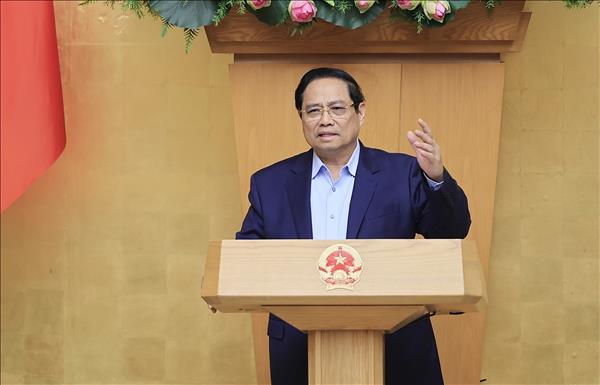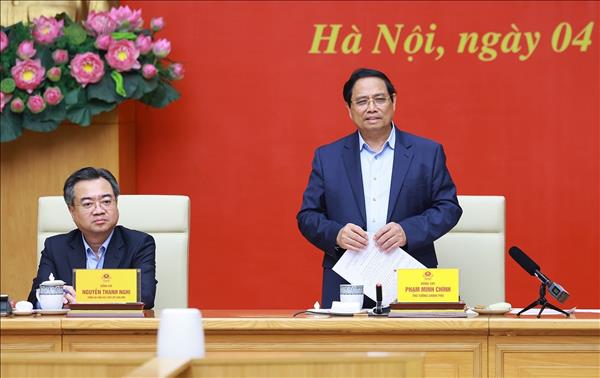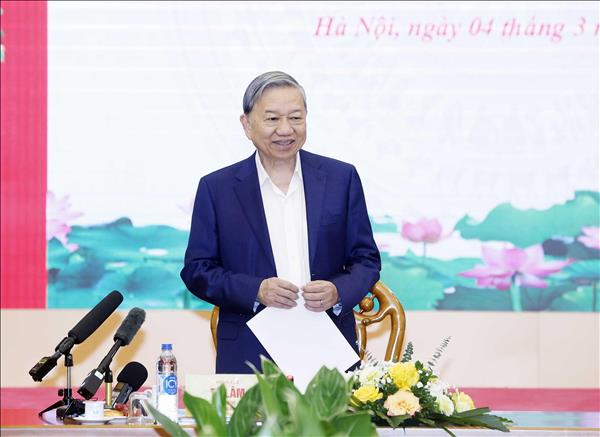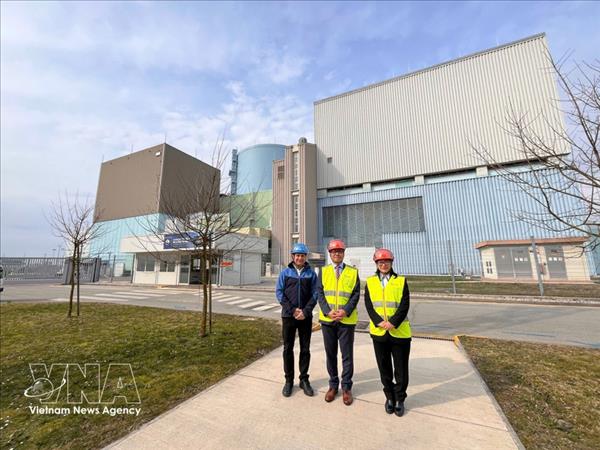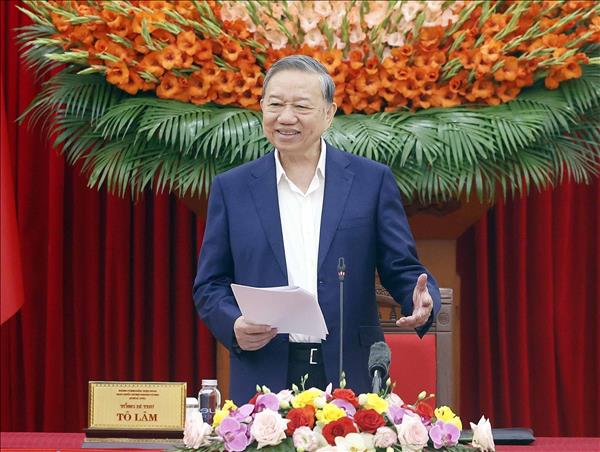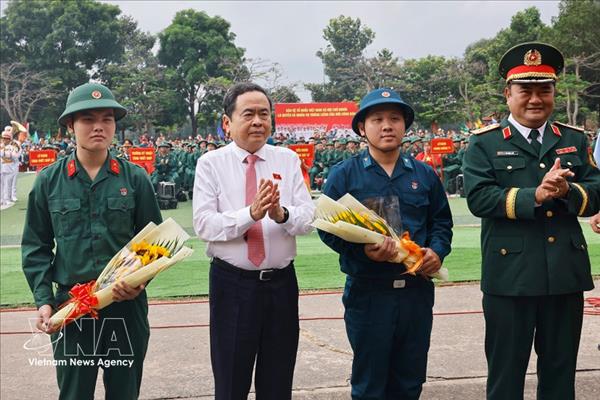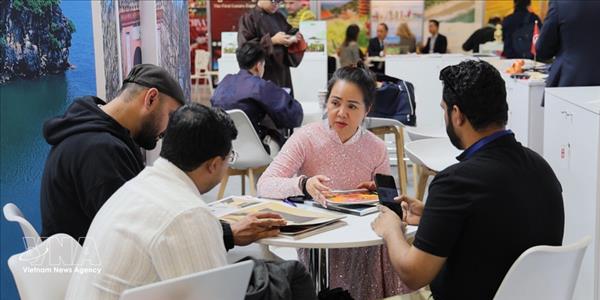Making news
Vietnam, Japan issue joint statement toward opening new era in bilateral extensive strategic partnership
Vietnam and Japan on November 24 issued a joint statement toward the opening of a new era in the bilateral extensive strategic partnership for peace and prosperity in Asia on the occasion of Prime Minister Pham Minh Chinh’s official visit to Japan from November 22-25.
Following is the full text of the joint statement.
At the invitation of the Prime Minister of Japan H.E. Kishida Fumio, H.E. Pham Minh Chinh, Prime Minister of the Socialist Republic of Vietnam, made an official visit to Japan from the 22nd to the 25th of November 2021. Prime Minister Chinh was the first foreign leader to visit following the inauguration of Japan's new administration. The two sides consented to work closely together to develop their Extensive Strategic Partnership into an increasingly substantive and effective partnership in all areas and to elevate it to new heights. Current cooperation items are summarised in the Fact Sheet.
As the 50th anniversary of diplomatic relations is approaching, both sides noted with pleasure the remarkable achievements in relations in all aspects over the past half a century, and expressed confidence at this critical juncture in the bright future of relations for the next semi-centenary.
Prime Minister Pham Minh Chinh conveyed greetings, salutations and invitations from General Secretary of the Communist Party of Vietnam Nguyen Phu Trong, State President Nguyen Xuan Phuc, and Chairman of the National Assembly Vuong Dinh Hue to Their Majesties the Emperor and Empress, and other leaders of Japan to soon visit Vietnam.
Development of bilateral relations
1. Both sides welcomed the strong, comprehensive and substantial development of bilateral relations in many fields. They confirmed that both countries are important partners for each other and share many common strategic interests. Both sides also confirmed that there remain great potentials for further deepening of their Extensive Strategic Partnership. Both sides consented to continue to work closely with the goal of ensuring regional and international peace, stability and prosperity. Japan expressed recognition of Vietnam’s increasing role and constructive contributions in international and regional issues in addition to confirmation of Vietnam’s consistent importance in Japan’s foreign policy toward the Indo-Pacific region. Vietnam acknowledged Japan’s role as an important and longstanding partner and expressed the desire for Japan to continue to play a positive and constructive role in international and regional issues.
2. Frequent, high level bilateral visits and exchanges have strengthened political ties while ever more robust cooperation in economy, trade and investment has contributed to further growth of economic ties. Substantial development has also been made in numerous fields, ranging from security, agriculture, science and technology, education and training, the environment, climate change countermeasures, labor issues, construction, ICT, health, culture, tourism, sports to municipal and people to people exchange. Prime Minister Pham Minh Chinh praised Japan’s successful hosting of Tokyo 2020 Olympic and Paralympic Games.
3. Vietnam expressed gratitude to the Government of Japan and the Japanese people for the effective support for its socio-economic development and poverty reduction efforts through Official Development Assistance (ODA) during the past thirty years. Vietnam expressed appreciation for the active role and contribution that Japanese companies have made to the development of its economy and nation building process.
Cooperation in measures against the new coronavirus infection (COVID-19)
4. As the COVID-19 pandemic has caused unprecedented impacts on the socio-economy of countries around the world including Vietnam and Japan, the two Prime Ministers consented to work closely together on COVID-19 measures.
5. Prime Minister Kishida announced that the Government of Japan will additionally provide 1.5 million doses of COVID-19 vaccines to the Government of Vietnam. Prime Minister Chinh expressed his gratitude and high appreciation to the Government of Japan and the Japanese people for sharing COVID-19 vaccines that will amount to 5.6 million doses in total as well as many medical equipment and materials. Both sides consented to continue to work closely on research and production of COVID-19 vaccines and therapeutics.
Strengthening political relations, security cooperation
6. Both sides consented to maintain high-level visits, exchanges, dialogues, and exchanges between political parties and parliaments in various forms including at multilateral frameworks. Both sides confirmed that they would improve the effectiveness of existing dialogue and consultation frameworks in various areas.
7. Both sides consented in strengthening cooperation to address non-traditional security issues such as cybersecurity, prevention of cybercrime, terrorism and transnational crimes, and food and natural resource security. They also recognized the importance of resilient, diverse, secure, and transparent supply chain.
8. Both sides, as coastal nations, recognized the importance of maintaining maritime freedom and openness and respecting international law including the United Nations Convention on the Law of the Sea (UNCLOS) and the United Nations Charter. They also confirmed to further strengthen cooperation in maritime security including capacity development of the Vietnamese maritime authorities, ocean economic development, and the sustainable development and utilisation of ocean resources.
9. The two Prime Ministers welcomed the various cooperative efforts between the defense authorities of Japan and Vietnam that have made progress, under the idea of the Japan-Vietnam bilateral defense cooperation at a new period for peace and stability of the region and the international community. Prime Minister Kishida stated that Japan will provide cooperation including dispatching Japanese experts comprising mainly of Japan Ground Self-Defense Force’s personnel to Vietnam to assist Vietnamese preparation to participate in peacekeeping operations, Prime Minister Chinh welcomed this. Both sides welcomed that both defense authorities will accelerate consultations for the transfer of specific equipment including naval vessels and related equipment in light of the Agreement concerning the Transfer of Defense Equipment and Technology. Both Prime Ministers also welcomed that the defense authorities of Japan and Vietnam will promote cooperation in the fields of cybersecurity and military medicine.
Cooperation for post COVID-19 economic revitalization
10. Prime Minister Kishida stated that Japan will continue to contribute to Vietnam's socio-economic development. Prime Minister Chinh praised Prime Minister Kishida's new economic strategy for a virtuous cycle of growth and distribution and expressed confidence that the strategy would lead Japan to a new and stable stage of development. Japan highly appreciated Vietnam’s strategic orientations and directions as reflected in its 10-year Socio-economic Development Strategy for 2021-2030.
11. The two Prime Ministers consented to further facilitate business collaborations between Japanese and Vietnamese companies as well as improving the investment environment for companies through cooperation in such areas as digital transformation, diversification of the production base and development of supporting industries towards resilient global supply chains, including of both countries, which are keys for post COVID-19 economic revitalization. Both sides will continue cooperating in industrial development, and will consider expanding the scope of cooperation in training and consultation on kaizen, business matching, and capacity building for Vietnamese manufacturers to enable them to join Japanese companies’ supply chain in Vietnam, in the region and the world.
12. The two Prime Ministers shared their perceptions of digital transformation and the development of the digital economy as digital societies will play an important role in the post COVID-19 era. They consented to strengthen cooperation in creative innovation, ICT, digital transformation, digital economy, realization of smart cities through project formation studies etc, the development of broadband infrastructure including 5G, and information security. In this context, they recognized that technology ecosystems built upon trust, integrity, and resilience will foster innovation and make the lives of citizens more secure, prosperous, and rewarding, in addition to addressing some of the world’s greatest shared challenges, such as equitable growth, climate change, energy security, and pandemic diseases.
13. The two Prime Ministers highly value the active role and contribution of Japan's ODA, and shared the intention to continuously implement development cooperation between the two countries in an effective and smooth manner to ensure their interests and meeting the needs of Vietnam. The two Prime Ministers consented to work together to increase direct investment from Japan to Vietnam. Prime Minister Chinh welcomed Japanese companies to choose Vietnam as an investment destination and reaffirmed Vietnam's commitment to create an open and transparent investment environment and create a favorable environment for companies to conduct businesses. The two Prime Ministers consented to continue to work closely together to resolve difficulties in implementing Japan's ODA projects in Vietnam and to promote regional connectivity as well as priority infrastructure projects such as Vietnam's railroads, airports, ports and highways, which contribute to the development of industrial infrastructure. The two Prime Ministers consented to actively promote post COVID-19 recovery ODA programs which address emerging needs and interest of the two countries and match the great potentials of their Extensive Strategic Partnership toward the future, with focus on notably the four fields: transport infrastructure, climate change infrastructure, healthcare and digital transformation for post COVID-19 economic recovery, taking into account the importance of concessionality, simple procedures and flexibility in implementation, and instructed relevant authorities of both countries to launch intensive discussion on the programmes.
14. The two Prime Ministers confirmed that Vietnam and Japan will promote tourism cooperation, facilitate travel, so that tourism statistics can soon restore to 1.5 million which is the same level as before the COVID-19 pandemic as soon as possible, and increase tourism exchanges even more than before. They also confirmed to continue discussions for early mutual recognition of vaccination certificate between the two countries.
Cooperation in human resource development
15. The two Prime Ministers confirmed to make their efforts in the cooperation for Vietnam's administrative reforms, the development of high quality human resources, and the promotion of training opportunities for high-level officials and executives of the Party and government. The two Prime Ministers consented to strengthen cooperation on addressing issues regarding Vietnamese technical intern trainees and students who are playing important roles for the Japanese economy and society. Being aware of the need to improve their living environment, conditions and social security, the two Prime Ministers instructed relevant authorities to work together in both countries to tackle the issues.
Cooperation on sustainable development, climate change measures and agriculture
16. The two Prime Ministers took note of the importance of maintaining cooperation in environmental protection for sustainable development, disaster risk reduction, climate change mitigation and adaptation, and green transformation. Both Prime Ministers reaffirmed their determination to implementing global agreements and commitments on sustainable development such as the 2030 Agenda for Sustainable Development, the Paris Agreement on Climate Change and the Sendai Framework for Disaster Risk Reduction 2015-2030. Prime Minister Kishida welcomed Vietnam’s carbon neutral target by 2050, as announced recently by Prime Minister Chinh at the World Leaders Summit at COP 26, as being compatible with the 1.5 Celsius degree goal of the Paris Agreement. The two Prime Ministers consented to strengthen cooperation in green transformation, emission reductions and climate resilience, the environment and climate change measures to achieve the above commitments.
17. Both leaders reaffirmed to work closely to continue the effective implementation of the “Medium-to Long-Term Vision for Japan-Vietnam Agricultural Cooperation”, and to promote high quality agriculture cooperation, including investment attraction, and the transfer of technology and know-how in this field.
Cooperation on energy transitions
18. The two Prime Ministers recognised the importance of simultaneously achieving both sustainable economic growth and reduction of greenhouse gas emissions as well as various pathways for realistic transitions depending on the circumstances of each country and constant innovation in order to achieve carbon neutrality by 2050. Prime Minister Kishida announced that Japan would provide comprehensive support for energy transitions in Vietnam through “Asia Energy Transition Initiative (AETI)” including the formulation of roadmaps and Prime Minister Chinh welcomed this.
Cooperation for the 50th anniversary of the establishment of diplomatic relations between Japan and Vietnam
19. The two Prime Ministers shared the recognition of the importance of holding projects suitable for their relationship in commemoration of the 50th anniversary of the establishment of diplomatic relations between Japan and Vietnam in 2023. Both Prime Ministers confirmed that both countries would work closely together to successfully carry out projects to further promote friendship, mutual understanding and exchange of peoples between the two countries in various fields.
Regional and international issues
20. Prime Minister Kishida congratulated Vietnam on its successful role as a non-permanent member of the UN Security Council for the term 2020-2021 and ASEAN Chair in 2020. Prime Minister Kishida also expressed gratitude for the close cooperation provided by Vietnam as ASEAN coordinator for Japan in the 2018-2021 term. Both Prime Ministers reaffirmed their commitment to strengthening wide-ranging cooperation in regional and international conferences, including the UN, APEC, ASEM, EAS, ASEAN 3, Japan-ASEAN Summit, ARF, and ADMM-Plus, and to proactively and constructively contribute to the maintenance of regional and global peace, stability, cooperation and development.
21. The two Prime Ministers reaffirmed the importance of ASEAN unity and centrality, and their close cooperation for the steady and effective implementation of the revised implementation plan of the Vision Statement on Japan-ASEAN Friendship and Cooperation as well as the Joint Statement of the 23rd ASEAN-Japan Summit on Cooperation on ASEAN Outlook on the Indo-Pacific. The two Prime Ministers recognized the importance of strengthening cooperation to address the unprecedented challenges that the COVID-19 pandemic poses to the region and the world, and shared the intention to cooperate in promoting Japan-ASEAN cooperation in COVID-19 countermeasures and post COVID-19 economic revitalization. The two Prime Ministers welcomed the outstanding achievements of ASEAN-Japan cooperation over the years and looked forward to celebrating the 50th Anniversary of ASEAN-Japan Friendship and Cooperation with a series of commemorative events in the year 2023. They also shared the view that a special summit that Japan would host in 2023 would be a historic opportunity to bring ASEAN-Japan partnership to a new level.
22. The two Prime Ministers expressed their pleasure at the steady progress of Japan-Mekong cooperation. Prime Minister Chinh expressed his gratitude to Japan for its long-standing contribution to the development of the Mekong region. The two Prime Ministers consented to strengthen cooperation to improve the efficiency and role of future Japan-Mekong cooperation. The two Prime Ministers reaffirmed the importance of sustainable management and development of the Mekong River and shared the intention to promote close cooperation between the Japan-Mekong framework and the Mekong regional organizations, especially the International Mekong River Commission.
23. The two Prime Ministers consented to further promote free trade, and welcomed the entry into force of the Regional Comprehensive Economic Partnership (RCEP) Agreement on January 1, 2022. Both Prime Ministers reiterated the need for coordinating with Parties to ensure the full implementation of the Agreement. Both Prime Ministers consented on the importance of working together with the other members to uphold the high standards of the Comprehensive and Progressive Agreement for Trans-Pacific Partnership (CPTPP).
24. The two Prime Ministers expressed serious concerns about the situation in the South China Sea and any unilateral attempts to change the status quo and increase tensions. The two Prime Ministers reaffirmed the importance of sustaining peace, security, safety, freedom of navigation in and overflight above the South China Sea, self-restraint, and peaceful resolution of disputes in accordance with international law in particular the United Nations Convention on the Law of the Sea (UNCLOS). The two Prime Ministers emphasized the importance of urging countries concerned to avoid unilateral actions that would militarise, change the status quo or complicate the situation in the South China Sea. The two Prime Ministers stressed the importance of full and effective implementation of the South China Sea Declaration of Conduct (DOC), took note of the progress of the South China Sea Code of Conduct (COC) negotiations and emphasized the importance of an effective and substantive COC that is consistent with the 1982 UNCLOS.
25. Prime Minister Kishida explained Japan’s efforts to realize a free and open Indo-Pacific. The two Prime Ministers emphasized the importance of free and open order based on the rule of law, where international law including the Charter of the United Nations, the independence of nations, and sovereignty are respected, in achieving stability, cooperation and prosperity in the Indo-Pacific region and the world. The two Prime Ministers welcomed their contributions and initiatives for that goal. Prime Minister Kishida reaffirmed that Vietnam and ASEAN are important partners for Japan and Japan's willingness to support and cooperate with Vietnam and ASEAN, including for the AOIP, under the principle of ASEAN centrality.
26. The two Prime Ministers exchanged views and expressed concern over the recent situation in the Korean Peninsula including the Democratic People’s Republic of Korea (DPRK)’s recent missile launches, which are not conducive to the peace and security of the region. In this regard, both Prime Ministers confirmed the importance of international cooperation and the full implementation of UN Security Council resolutions, and the urgency for all parties concerned to continue efforts to pursue peaceful and diplomatic solutions of the issues including dismantlement of all weapons of mass destruction and ballistic missiles of all ranges in accordance with UNSCRs, for regional and global peace, security, stability, cooperation and prosperity. The two Prime Ministers reaffirmed their commitment to strengthening cooperation for the immediate resolution of the abductions issue.
27. Prime Minister Kishida supported ASEAN's efforts such as the implementation of the Five Point Consensus to address the situation in Myanmar, and emphasized the importance of constructive response by Myanmar. Prime Minister Chinh expressed his gratitude to Japan for its support for ASEAN on the situation in Myanmar including humanitarian assistance. The two Prime Ministers confirmed that they would further cooperate on the situation in Myanmar.
28. Prime Minister Chinh confirmed Vietnam's support for Japan's candidature for a non-permanent seat on the UN Security Council in the term 2023-2024. The two Prime Ministers reaffirmed the importance of UN Security Council reform. Prime Minister Kishida expressed his gratitude to Vietnam for its support for the UN Security Council reform, including Japan becoming a permanent member.
29. The two Prime Ministers reaffirmed their commitment to realizing a world without nuclear weapons. They shared their views that the Treaty on the Non-Proliferation of Nuclear Weapons (NPT) is the cornerstone of the international nuclear disarmament and non-proliferation regime, and that the two countries continue to work closely to achieve a successful outcome at the 10th NPT Review Conference. In this respect, Prime Minister Chinh reiterated Vietnam’s strong support for Japan's initiative to submit “Joint courses of action and future-oriented dialogue towards a world without nuclear weapons” adopted at the First Committee of the UN General Assembly on October 27, 2021. Prime Minister Kishida expressed his appreciation to Vietnam's support.
Prime Minister Chinh expressed his heartfelt gratitude for the respectful and warm welcome from Prime Minister Kishida to this high-level delegation to Japan. Prime Minister Pham Minh Chinh extended invitation for Prime Minister Kishida to visit Vietnam at the earliest possible opportunity and Prime Minister Kishida appreciated this kind invitation./.
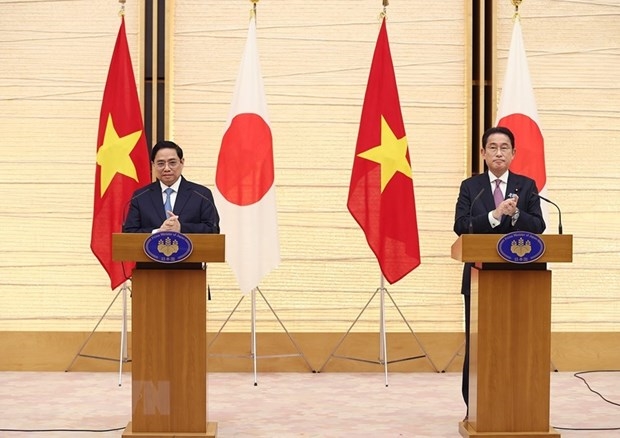 PM Pham Minh Chinh (left) and his Japanese counterpart Kishida Fumio at their joint press conference. (Photo: VNA) |
Following is the full text of the joint statement.
At the invitation of the Prime Minister of Japan H.E. Kishida Fumio, H.E. Pham Minh Chinh, Prime Minister of the Socialist Republic of Vietnam, made an official visit to Japan from the 22nd to the 25th of November 2021. Prime Minister Chinh was the first foreign leader to visit following the inauguration of Japan's new administration. The two sides consented to work closely together to develop their Extensive Strategic Partnership into an increasingly substantive and effective partnership in all areas and to elevate it to new heights. Current cooperation items are summarised in the Fact Sheet.
As the 50th anniversary of diplomatic relations is approaching, both sides noted with pleasure the remarkable achievements in relations in all aspects over the past half a century, and expressed confidence at this critical juncture in the bright future of relations for the next semi-centenary.
Prime Minister Pham Minh Chinh conveyed greetings, salutations and invitations from General Secretary of the Communist Party of Vietnam Nguyen Phu Trong, State President Nguyen Xuan Phuc, and Chairman of the National Assembly Vuong Dinh Hue to Their Majesties the Emperor and Empress, and other leaders of Japan to soon visit Vietnam.
Development of bilateral relations
1. Both sides welcomed the strong, comprehensive and substantial development of bilateral relations in many fields. They confirmed that both countries are important partners for each other and share many common strategic interests. Both sides also confirmed that there remain great potentials for further deepening of their Extensive Strategic Partnership. Both sides consented to continue to work closely with the goal of ensuring regional and international peace, stability and prosperity. Japan expressed recognition of Vietnam’s increasing role and constructive contributions in international and regional issues in addition to confirmation of Vietnam’s consistent importance in Japan’s foreign policy toward the Indo-Pacific region. Vietnam acknowledged Japan’s role as an important and longstanding partner and expressed the desire for Japan to continue to play a positive and constructive role in international and regional issues.
2. Frequent, high level bilateral visits and exchanges have strengthened political ties while ever more robust cooperation in economy, trade and investment has contributed to further growth of economic ties. Substantial development has also been made in numerous fields, ranging from security, agriculture, science and technology, education and training, the environment, climate change countermeasures, labor issues, construction, ICT, health, culture, tourism, sports to municipal and people to people exchange. Prime Minister Pham Minh Chinh praised Japan’s successful hosting of Tokyo 2020 Olympic and Paralympic Games.
3. Vietnam expressed gratitude to the Government of Japan and the Japanese people for the effective support for its socio-economic development and poverty reduction efforts through Official Development Assistance (ODA) during the past thirty years. Vietnam expressed appreciation for the active role and contribution that Japanese companies have made to the development of its economy and nation building process.
Cooperation in measures against the new coronavirus infection (COVID-19)
4. As the COVID-19 pandemic has caused unprecedented impacts on the socio-economy of countries around the world including Vietnam and Japan, the two Prime Ministers consented to work closely together on COVID-19 measures.
5. Prime Minister Kishida announced that the Government of Japan will additionally provide 1.5 million doses of COVID-19 vaccines to the Government of Vietnam. Prime Minister Chinh expressed his gratitude and high appreciation to the Government of Japan and the Japanese people for sharing COVID-19 vaccines that will amount to 5.6 million doses in total as well as many medical equipment and materials. Both sides consented to continue to work closely on research and production of COVID-19 vaccines and therapeutics.
Strengthening political relations, security cooperation
6. Both sides consented to maintain high-level visits, exchanges, dialogues, and exchanges between political parties and parliaments in various forms including at multilateral frameworks. Both sides confirmed that they would improve the effectiveness of existing dialogue and consultation frameworks in various areas.
7. Both sides consented in strengthening cooperation to address non-traditional security issues such as cybersecurity, prevention of cybercrime, terrorism and transnational crimes, and food and natural resource security. They also recognized the importance of resilient, diverse, secure, and transparent supply chain.
8. Both sides, as coastal nations, recognized the importance of maintaining maritime freedom and openness and respecting international law including the United Nations Convention on the Law of the Sea (UNCLOS) and the United Nations Charter. They also confirmed to further strengthen cooperation in maritime security including capacity development of the Vietnamese maritime authorities, ocean economic development, and the sustainable development and utilisation of ocean resources.
9. The two Prime Ministers welcomed the various cooperative efforts between the defense authorities of Japan and Vietnam that have made progress, under the idea of the Japan-Vietnam bilateral defense cooperation at a new period for peace and stability of the region and the international community. Prime Minister Kishida stated that Japan will provide cooperation including dispatching Japanese experts comprising mainly of Japan Ground Self-Defense Force’s personnel to Vietnam to assist Vietnamese preparation to participate in peacekeeping operations, Prime Minister Chinh welcomed this. Both sides welcomed that both defense authorities will accelerate consultations for the transfer of specific equipment including naval vessels and related equipment in light of the Agreement concerning the Transfer of Defense Equipment and Technology. Both Prime Ministers also welcomed that the defense authorities of Japan and Vietnam will promote cooperation in the fields of cybersecurity and military medicine.
Cooperation for post COVID-19 economic revitalization
10. Prime Minister Kishida stated that Japan will continue to contribute to Vietnam's socio-economic development. Prime Minister Chinh praised Prime Minister Kishida's new economic strategy for a virtuous cycle of growth and distribution and expressed confidence that the strategy would lead Japan to a new and stable stage of development. Japan highly appreciated Vietnam’s strategic orientations and directions as reflected in its 10-year Socio-economic Development Strategy for 2021-2030.
11. The two Prime Ministers consented to further facilitate business collaborations between Japanese and Vietnamese companies as well as improving the investment environment for companies through cooperation in such areas as digital transformation, diversification of the production base and development of supporting industries towards resilient global supply chains, including of both countries, which are keys for post COVID-19 economic revitalization. Both sides will continue cooperating in industrial development, and will consider expanding the scope of cooperation in training and consultation on kaizen, business matching, and capacity building for Vietnamese manufacturers to enable them to join Japanese companies’ supply chain in Vietnam, in the region and the world.
12. The two Prime Ministers shared their perceptions of digital transformation and the development of the digital economy as digital societies will play an important role in the post COVID-19 era. They consented to strengthen cooperation in creative innovation, ICT, digital transformation, digital economy, realization of smart cities through project formation studies etc, the development of broadband infrastructure including 5G, and information security. In this context, they recognized that technology ecosystems built upon trust, integrity, and resilience will foster innovation and make the lives of citizens more secure, prosperous, and rewarding, in addition to addressing some of the world’s greatest shared challenges, such as equitable growth, climate change, energy security, and pandemic diseases.
13. The two Prime Ministers highly value the active role and contribution of Japan's ODA, and shared the intention to continuously implement development cooperation between the two countries in an effective and smooth manner to ensure their interests and meeting the needs of Vietnam. The two Prime Ministers consented to work together to increase direct investment from Japan to Vietnam. Prime Minister Chinh welcomed Japanese companies to choose Vietnam as an investment destination and reaffirmed Vietnam's commitment to create an open and transparent investment environment and create a favorable environment for companies to conduct businesses. The two Prime Ministers consented to continue to work closely together to resolve difficulties in implementing Japan's ODA projects in Vietnam and to promote regional connectivity as well as priority infrastructure projects such as Vietnam's railroads, airports, ports and highways, which contribute to the development of industrial infrastructure. The two Prime Ministers consented to actively promote post COVID-19 recovery ODA programs which address emerging needs and interest of the two countries and match the great potentials of their Extensive Strategic Partnership toward the future, with focus on notably the four fields: transport infrastructure, climate change infrastructure, healthcare and digital transformation for post COVID-19 economic recovery, taking into account the importance of concessionality, simple procedures and flexibility in implementation, and instructed relevant authorities of both countries to launch intensive discussion on the programmes.
14. The two Prime Ministers confirmed that Vietnam and Japan will promote tourism cooperation, facilitate travel, so that tourism statistics can soon restore to 1.5 million which is the same level as before the COVID-19 pandemic as soon as possible, and increase tourism exchanges even more than before. They also confirmed to continue discussions for early mutual recognition of vaccination certificate between the two countries.
Cooperation in human resource development
15. The two Prime Ministers confirmed to make their efforts in the cooperation for Vietnam's administrative reforms, the development of high quality human resources, and the promotion of training opportunities for high-level officials and executives of the Party and government. The two Prime Ministers consented to strengthen cooperation on addressing issues regarding Vietnamese technical intern trainees and students who are playing important roles for the Japanese economy and society. Being aware of the need to improve their living environment, conditions and social security, the two Prime Ministers instructed relevant authorities to work together in both countries to tackle the issues.
Cooperation on sustainable development, climate change measures and agriculture
16. The two Prime Ministers took note of the importance of maintaining cooperation in environmental protection for sustainable development, disaster risk reduction, climate change mitigation and adaptation, and green transformation. Both Prime Ministers reaffirmed their determination to implementing global agreements and commitments on sustainable development such as the 2030 Agenda for Sustainable Development, the Paris Agreement on Climate Change and the Sendai Framework for Disaster Risk Reduction 2015-2030. Prime Minister Kishida welcomed Vietnam’s carbon neutral target by 2050, as announced recently by Prime Minister Chinh at the World Leaders Summit at COP 26, as being compatible with the 1.5 Celsius degree goal of the Paris Agreement. The two Prime Ministers consented to strengthen cooperation in green transformation, emission reductions and climate resilience, the environment and climate change measures to achieve the above commitments.
17. Both leaders reaffirmed to work closely to continue the effective implementation of the “Medium-to Long-Term Vision for Japan-Vietnam Agricultural Cooperation”, and to promote high quality agriculture cooperation, including investment attraction, and the transfer of technology and know-how in this field.
Cooperation on energy transitions
18. The two Prime Ministers recognised the importance of simultaneously achieving both sustainable economic growth and reduction of greenhouse gas emissions as well as various pathways for realistic transitions depending on the circumstances of each country and constant innovation in order to achieve carbon neutrality by 2050. Prime Minister Kishida announced that Japan would provide comprehensive support for energy transitions in Vietnam through “Asia Energy Transition Initiative (AETI)” including the formulation of roadmaps and Prime Minister Chinh welcomed this.
Cooperation for the 50th anniversary of the establishment of diplomatic relations between Japan and Vietnam
19. The two Prime Ministers shared the recognition of the importance of holding projects suitable for their relationship in commemoration of the 50th anniversary of the establishment of diplomatic relations between Japan and Vietnam in 2023. Both Prime Ministers confirmed that both countries would work closely together to successfully carry out projects to further promote friendship, mutual understanding and exchange of peoples between the two countries in various fields.
Regional and international issues
20. Prime Minister Kishida congratulated Vietnam on its successful role as a non-permanent member of the UN Security Council for the term 2020-2021 and ASEAN Chair in 2020. Prime Minister Kishida also expressed gratitude for the close cooperation provided by Vietnam as ASEAN coordinator for Japan in the 2018-2021 term. Both Prime Ministers reaffirmed their commitment to strengthening wide-ranging cooperation in regional and international conferences, including the UN, APEC, ASEM, EAS, ASEAN 3, Japan-ASEAN Summit, ARF, and ADMM-Plus, and to proactively and constructively contribute to the maintenance of regional and global peace, stability, cooperation and development.
21. The two Prime Ministers reaffirmed the importance of ASEAN unity and centrality, and their close cooperation for the steady and effective implementation of the revised implementation plan of the Vision Statement on Japan-ASEAN Friendship and Cooperation as well as the Joint Statement of the 23rd ASEAN-Japan Summit on Cooperation on ASEAN Outlook on the Indo-Pacific. The two Prime Ministers recognized the importance of strengthening cooperation to address the unprecedented challenges that the COVID-19 pandemic poses to the region and the world, and shared the intention to cooperate in promoting Japan-ASEAN cooperation in COVID-19 countermeasures and post COVID-19 economic revitalization. The two Prime Ministers welcomed the outstanding achievements of ASEAN-Japan cooperation over the years and looked forward to celebrating the 50th Anniversary of ASEAN-Japan Friendship and Cooperation with a series of commemorative events in the year 2023. They also shared the view that a special summit that Japan would host in 2023 would be a historic opportunity to bring ASEAN-Japan partnership to a new level.
22. The two Prime Ministers expressed their pleasure at the steady progress of Japan-Mekong cooperation. Prime Minister Chinh expressed his gratitude to Japan for its long-standing contribution to the development of the Mekong region. The two Prime Ministers consented to strengthen cooperation to improve the efficiency and role of future Japan-Mekong cooperation. The two Prime Ministers reaffirmed the importance of sustainable management and development of the Mekong River and shared the intention to promote close cooperation between the Japan-Mekong framework and the Mekong regional organizations, especially the International Mekong River Commission.
23. The two Prime Ministers consented to further promote free trade, and welcomed the entry into force of the Regional Comprehensive Economic Partnership (RCEP) Agreement on January 1, 2022. Both Prime Ministers reiterated the need for coordinating with Parties to ensure the full implementation of the Agreement. Both Prime Ministers consented on the importance of working together with the other members to uphold the high standards of the Comprehensive and Progressive Agreement for Trans-Pacific Partnership (CPTPP).
24. The two Prime Ministers expressed serious concerns about the situation in the South China Sea and any unilateral attempts to change the status quo and increase tensions. The two Prime Ministers reaffirmed the importance of sustaining peace, security, safety, freedom of navigation in and overflight above the South China Sea, self-restraint, and peaceful resolution of disputes in accordance with international law in particular the United Nations Convention on the Law of the Sea (UNCLOS). The two Prime Ministers emphasized the importance of urging countries concerned to avoid unilateral actions that would militarise, change the status quo or complicate the situation in the South China Sea. The two Prime Ministers stressed the importance of full and effective implementation of the South China Sea Declaration of Conduct (DOC), took note of the progress of the South China Sea Code of Conduct (COC) negotiations and emphasized the importance of an effective and substantive COC that is consistent with the 1982 UNCLOS.
25. Prime Minister Kishida explained Japan’s efforts to realize a free and open Indo-Pacific. The two Prime Ministers emphasized the importance of free and open order based on the rule of law, where international law including the Charter of the United Nations, the independence of nations, and sovereignty are respected, in achieving stability, cooperation and prosperity in the Indo-Pacific region and the world. The two Prime Ministers welcomed their contributions and initiatives for that goal. Prime Minister Kishida reaffirmed that Vietnam and ASEAN are important partners for Japan and Japan's willingness to support and cooperate with Vietnam and ASEAN, including for the AOIP, under the principle of ASEAN centrality.
26. The two Prime Ministers exchanged views and expressed concern over the recent situation in the Korean Peninsula including the Democratic People’s Republic of Korea (DPRK)’s recent missile launches, which are not conducive to the peace and security of the region. In this regard, both Prime Ministers confirmed the importance of international cooperation and the full implementation of UN Security Council resolutions, and the urgency for all parties concerned to continue efforts to pursue peaceful and diplomatic solutions of the issues including dismantlement of all weapons of mass destruction and ballistic missiles of all ranges in accordance with UNSCRs, for regional and global peace, security, stability, cooperation and prosperity. The two Prime Ministers reaffirmed their commitment to strengthening cooperation for the immediate resolution of the abductions issue.
27. Prime Minister Kishida supported ASEAN's efforts such as the implementation of the Five Point Consensus to address the situation in Myanmar, and emphasized the importance of constructive response by Myanmar. Prime Minister Chinh expressed his gratitude to Japan for its support for ASEAN on the situation in Myanmar including humanitarian assistance. The two Prime Ministers confirmed that they would further cooperate on the situation in Myanmar.
28. Prime Minister Chinh confirmed Vietnam's support for Japan's candidature for a non-permanent seat on the UN Security Council in the term 2023-2024. The two Prime Ministers reaffirmed the importance of UN Security Council reform. Prime Minister Kishida expressed his gratitude to Vietnam for its support for the UN Security Council reform, including Japan becoming a permanent member.
29. The two Prime Ministers reaffirmed their commitment to realizing a world without nuclear weapons. They shared their views that the Treaty on the Non-Proliferation of Nuclear Weapons (NPT) is the cornerstone of the international nuclear disarmament and non-proliferation regime, and that the two countries continue to work closely to achieve a successful outcome at the 10th NPT Review Conference. In this respect, Prime Minister Chinh reiterated Vietnam’s strong support for Japan's initiative to submit “Joint courses of action and future-oriented dialogue towards a world without nuclear weapons” adopted at the First Committee of the UN General Assembly on October 27, 2021. Prime Minister Kishida expressed his appreciation to Vietnam's support.
Prime Minister Chinh expressed his heartfelt gratitude for the respectful and warm welcome from Prime Minister Kishida to this high-level delegation to Japan. Prime Minister Pham Minh Chinh extended invitation for Prime Minister Kishida to visit Vietnam at the earliest possible opportunity and Prime Minister Kishida appreciated this kind invitation./.
VNA/VNP


